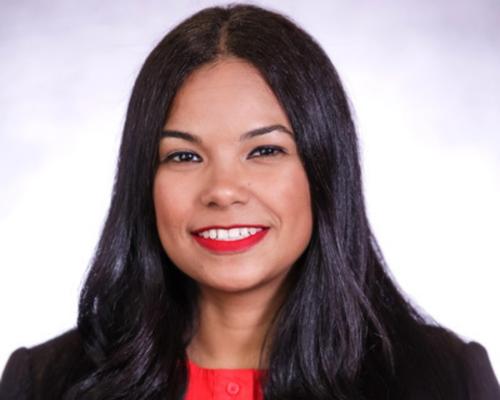Racial Disparities in Black Maternal Health Addressed During Black Directors Health Equity Agenda Summit
According to the Centers for Disease Control, an African American woman is three times
more likely to die from maternal causes than a white woman.
 Dr. Natalie Hernandez
Dr. Natalie Hernandez
Executive Director, MSM Center for Maternal Health Equity
By Allison Joyner, Saporta Report | October 10, 2022
The Black Directors Health Equity Agenda (BDHEA) met at Morehouse School of Medicine last week to discuss health disparities and inequities that threaten African American families.
With over 400 members, the BDHEA is a group of health and business leaders, researchers, and policymakers with the mission to provide long-term solutions to improve the healthcare system. Among many issues discussed at the national summit was the maternal health crisis in the Black community.
"We know much of what determines whether or not someone has access to quality healthcare is income," said Linda Goler Blount, President and CEO of the Black Women's Health Imperative (BWHI).
As the first nonprofit created by Black women to help protect and advance the health and wellness of Black women and girls, the BWHI has been focusing on chronic disease prevention and risk reduction, like HIV and making sure that women have access to reproductive healthcare with full comprehensive reproductive healthcare choices for over 40 years.
"The people who are attending this meeting are leaders in their organizations in various disciplines in medical, finance, care delivery, public health and training and one of those disciplines has a different perspective on health equity which is a critical role to play in achieving health equity," Blount said.
The discussions on why the conditions in which people are born, work, live and age — known as social determinants of health — exist in the first place. Blount told Saporta Report that the lack of healthcare in rural areas, living wages and proper education are some of the determinants affecting people today.
Maternal and infant health was the main issue discussed at the summit. Each year hundreds of women suffer complications, maternal morbidity or death while giving birth.
"We know that there are inequities when it comes to maternal deaths and severe maternal morbidity, where Black women are three-to-four times more likely to die from a pregnancy-related complication compared to non-Hispanic white women," said Dr. Natalie Hernandez, Executive Director of the Center for Maternal Health Equity at Morehouse School of Medicine, the goal of which is to pursue equity in maternal health. "Many of these leading causes of death for Black women, in particular, are related to cardiovascular disease or cardiomyopathy, which is different than what other populations or race and ethnic groups face."
She added that mental health and substance use for white women and hemorrhaging for Asian Pacific Islander women contribute to maternal complications or death regarding other races and ethnicities.
"If we address maternal health when a woman's pregnant, then it's already too late," Hernandez said. "We need to start thinking before that and even observe issues and have projects focused on fertility and other challenges Black women experienced in accessing fertility services all the way through the postpartum period."
Blount and Hernandez agree that the community needs to get more involved to ensure everyone gets the same access to healthcare.
"Access is a human right, and everyone focuses on the inequities," Hernandez said, "but we need to focus on the solutions and a part of those solutions is putting the right people at the table to be accountable for the decisions that they make that affect our communities."
Voting at the national level is essential but the improvements to health equality happen at the state level, which determines health policies for people and closures of hospitals serving low-income communities like the WellStar Atlanta Medical Center, which is scheduled to close on Nov. 1.
"If people are not aware of these issues and then don't vote for people who are committed to the health and wellness of low-income, rural people that don't have a living wage, then we will continue to see this happen again and again," Blount said.

